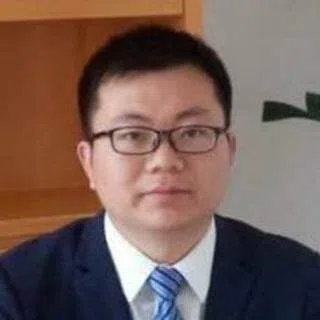ASEAN-China Summit in Laos: Focusing on cooperation amid global challenges
Chinese academic Peng Nian asserts that the recent ASEAN-China Summit in Laos reaffirmed strong bilateral ties. He believes that ASEAN countries will resist external pressures to choose sides, given the larger need to work with China to address common issues.
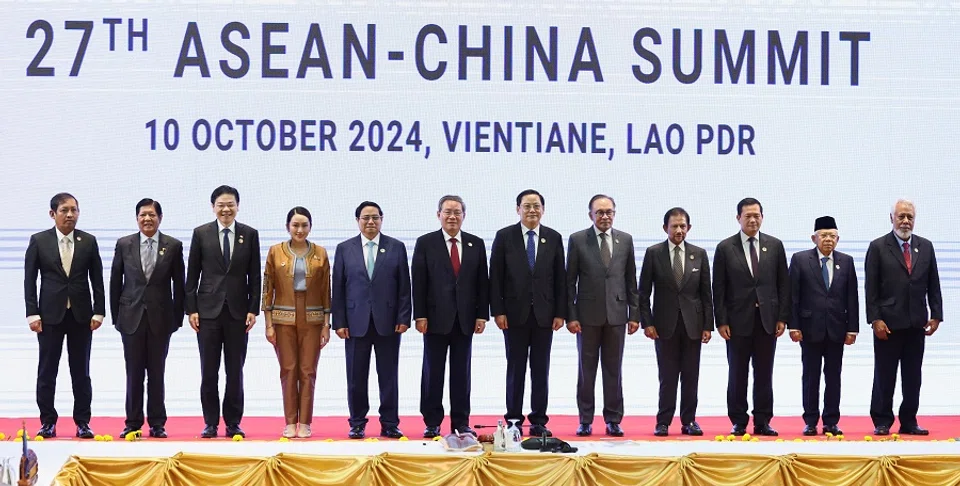
The 44th and 45th ASEAN Summits and Related Summits were held in Vientiane, the capital of Laos, from 9 to 11 October. At the sidelines of the 27th ASEAN-China Summit, China and the ASEAN member states jointly issued the Joint Statement on the Substantial Conclusion of the ASEAN-China Free Trade Area (ACFTA) 3.0 Upgrade Negotiations, a landmark achievement for trade and investment cooperation between China and ASEAN.
South China Sea issue vs cooperation and development
However, some participants brought up the South China Sea (SCS) disputes, which shifted attention away from the primary focus on peace and development at the ASEAN Summits. During the meeting with Southeast Asian leaders on 11 October, US Secretary of State Antony Blinken criticised China’s increasingly dangerous and unlawful activities in the SCS for injuring people and harming vessels from ASEAN nations.
The day before that, Philippine President Marcos Jr, the closest ally of the US, also raised the issue in the meeting with Chinese Premier Li Qiang, arguing that China cannot pretend that all is well on the economic front when there are tensions on the political front.
While the US and the Philippines sought to highlight the South China Sea disputes as part of the “China threat”, most ASEAN leaders chose to steer clear of intense discussions on this issue during the summit.
For a long time, the ASEAN summits have been themed on cooperation and development, focusing on economic development and regional integration rather than highlighting and provoking geostrategic confrontation.
For instance, this year’s summit theme, “ASEAN: Enhancing Connectivity and Resilience”, underscores the leaders’ commitment to improving cross-border connectivity and strengthening the region’s industrial resilience, contributing to long-term prosperity and stability.
With the opening of the China-Laos Railway and its connection with the China-Thailand Railway, and the feasibility study of the China-Vietnam Railway, the cross-border connectivity between China and ASEAN will be greatly accelerated in the future...
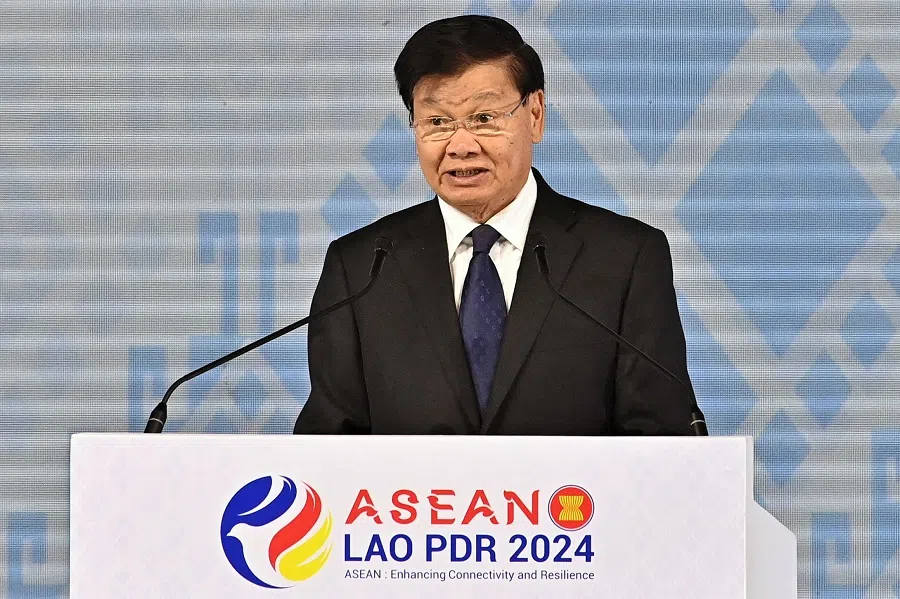
As Thongloun Sisoulith, president of Laos and the rotating chair of ASEAN, said in his opening address in Vientiane, ASEAN should continue to uphold its common cause of peace, stability and sustainable development, and commitment to multilateralism based on equality and mutual benefit. He said ASEAN countries should further strengthen cooperation grounded in the principles of “the ASEAN Way” to enhance ASEAN unity, solidarity and centrality.
Increasing connectivity amid China-US rivalry
Against the backdrop of the restructuring of the global supply chain and industrial chain since the China-US trade war, ASEAN countries are committed to deepening cooperation on the industrial chain with China to maintain sustained economic growth.
Moreover, ASEAN countries are eager to strengthen cooperation with China on the digital economy, green economy and artificial intelligence (AI) to promote sustainable development amid a new round of scientific and technological revolution led by AI.
Prior to this, China and ASEAN have made significant progress in physical connectivity in the past three years, laying a solid foundation for the rapid development of regional economic integration. As Chinese Premier Li said in his speech at the summit, China and ASEAN should build a multidimensional connective network to pave the way for Asia’s future development.
With the opening of the China-Laos Railway and its connection with the China-Thailand Railway, and the feasibility study of the China-Vietnam Railway, the cross-border connectivity between China and ASEAN will be greatly accelerated in the future, thus adding strong engines to ASEAN’s economic growth.
Since the US proposed the “Indo-Pacific strategy” in 2017, Southeast Asian nations have faced rising pressures to take sides between China and the US. On the one hand, the US announced the Indo-Pacific Economic Framework for Prosperity (IPEF) to compete for influence with China in the Southeast Asian markets, on the other hand, it destabilised the SCS by supporting some claimants’ provocative actions against China in the disputed waters.
Vigilant about efforts disrupting regional peace and stability
Such actions not only weaken ASEAN’s centrality in maintaining peace and development in the region, but also generate differences among ASEAN member states, thereby increasing uncertainty about the future development of ASEAN.
In recent years, only the Philippines has been notably active in raising issues in the SCS since Marcos Jr took office two years ago, while other claimant states have remained relatively quiet.
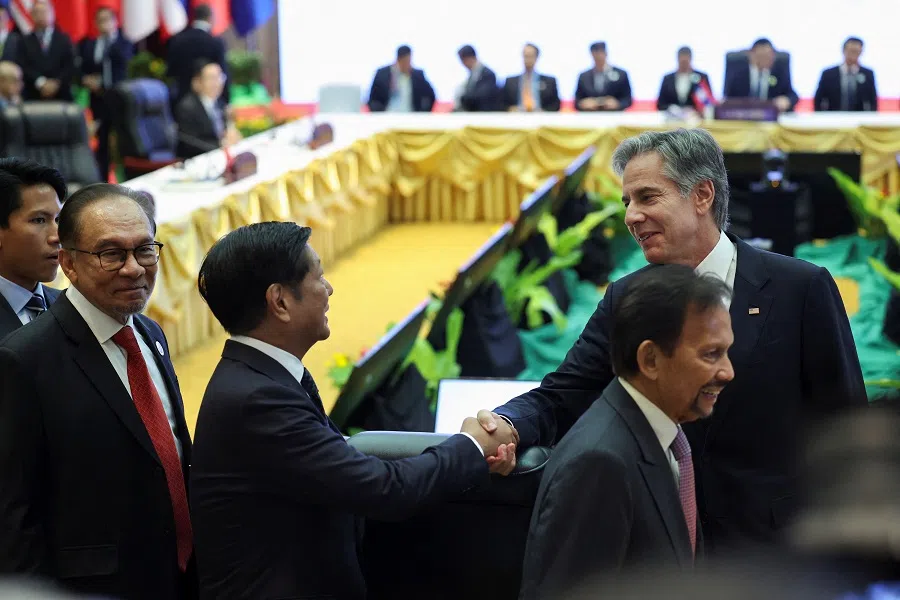
In recent years, only the Philippines has been notably active in raising issues in the SCS since Marcos Jr took office two years ago, while other claimant states have remained relatively quiet. Although Marcos sought to form a “united front” against China with Vietnam and Malaysia regarding the South China Sea, he did not secure their support.
Conversely, all the newly elected leaders of Vietnam, Malaysia and Indonesia visited China and vowed to upgrade bilateral ties. For most ASEAN member states, cooperation takes precedence over competition when navigating great power rivalries in the region.
Notably, just before the summit, Indonesia’s Jakarta Post published an editorial titled “No to Asia’s NATO”, criticising the “Asian version of NATO” proposed by Japanese Prime Minister Shigeru Ishiba and cautioning against introducing this concept during the ASEAN Summit. This highlights that ASEAN states are keeping a close eye on any attempts to disrupt peace and stability in the region.
Urgent issues to tackle
In fact, ASEAN’s top priority is far from the SCS dispute. More pressing issues, such as the Myanmar crisis and telecommunication scams, require urgent and appropriate solutions.
Since the military coup in 2021, ASEAN has been striving to promote peace, stability and unity in Myanmar through diplomatic mediation. China has backed ASEAN’s efforts to take the lead in addressing the Myanmar crisis.
However, escalating tensions between the military and anti-government forces, including the People’s Defence Forces and certain ethnic armed groups supported by the US, have made ASEAN’s peaceful diplomatic mediation increasingly challenging.
Telecommunication scams in several Southeast Asian countries, including the Philippines, Thailand, Laos, Myanmar and Cambodia, have become a “cancer”, undermining social stability and hindering people-to-people exchanges among these nations.
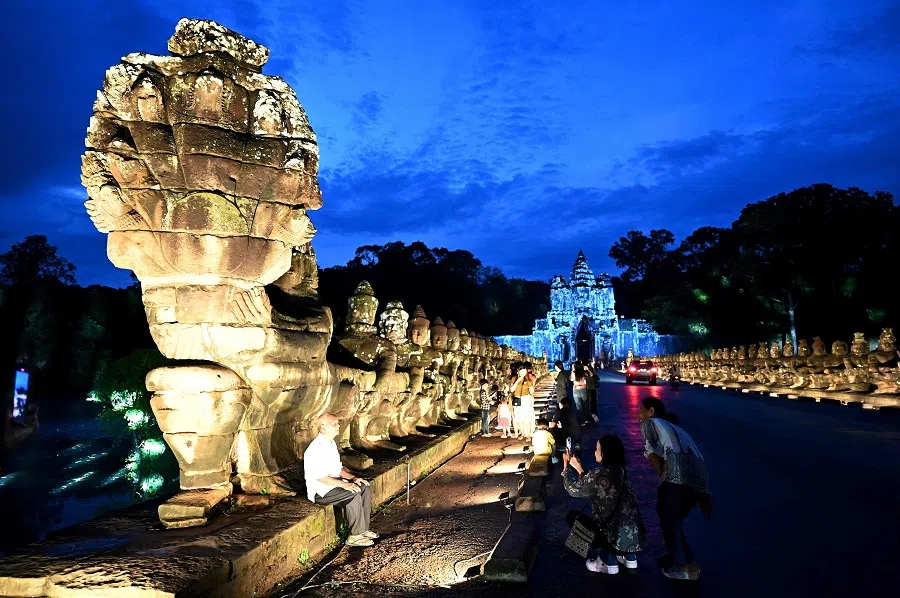
Telecommunication scams in several Southeast Asian countries, including the Philippines, Thailand, Laos, Myanmar and Cambodia, have become a “cancer”, undermining social stability and hindering people-to-people exchanges among these nations.
During the summit, Thailand and Laos pledged to work together to combat cross-border telecommunication scams and tackle the major issues affecting both countries. Previously, China collaborated with the Philippines, Myanmar and Laos to repatriate criminals involved in these scams. It is clear that China and ASEAN states have agreed to collaborate on addressing telecommunications scams, which will help maintain social stability within ASEAN countries and enhance people-to-people exchanges with China.
